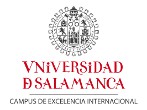Using Genomics to Improve Response to Neoadjuvant Therapy in Patients with Rectal Cancer
ANAMARIA ARANHA CAMARGO
Title
Using Genomics to Improve Response to Neoadjuvant Therapy in Patients with Rectal Cancer.
Abstract
Neoadjuvant chemoradiation (CRT) may lead to complete tumor regression in a significant proportion of patients with distal rectal cancer. In the absence of residual cancer cells, more conservative surgical procedures to total mesorectal excision and a wait-and-watch approach (without immediate surgery) have been considered for patients who have clinical evidence of complete tumor regression in an effort to avoid unnecessary postoperative morbidity and functional disorders. However, patient selection is very difficult and based on rather imprecise and subjective radiological and clinical findings, preventing the widespread adoption of conservative treatment strategies for patients with complete tumor regression. In this setting, we are working in close collaboration with the group of surgeons lead by Dr. Angelita Gama, and using different genomic approaches to identify patients that are most likely to benefit from CRT and who are potential candidates to these conservative treatment strategies. So far, we have identified a gene signature capable of predicting complete response to neoadjuvant CRT and developed a sequencing strategy to identify personalized tumor biomarkers for accessing residual disease after CRT.






